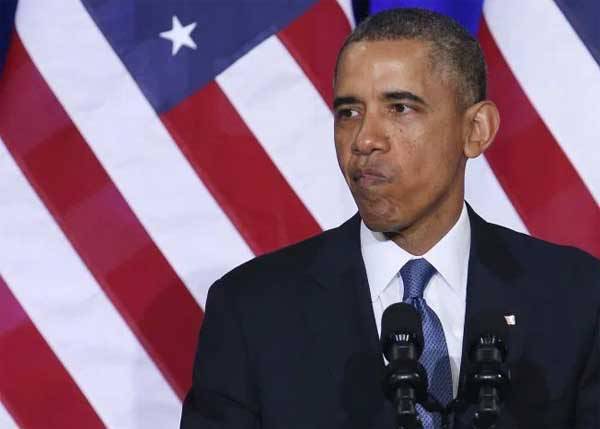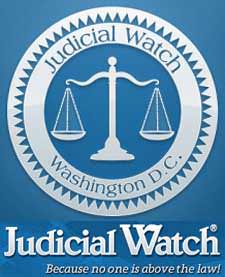
 Washington, DC –-(Ammoland.com)- Judicial Watch today announced that it asked the U.S. District Court for the District of Columbia to reconsider its March 28, 2017, Judgment in a Freedom of Information Act (FOIA) lawsuit against the U.S. Department of Defense and the Central Intelligence Agency (CIA) due to an extraordinary admission by the defendants that declarations submitted during litigation caused the court to “misapprehend its factual assertions” (Judicial Watch v. U.S. Department of Defense, et al (No. 1:16-cv-00360)).
Washington, DC –-(Ammoland.com)- Judicial Watch today announced that it asked the U.S. District Court for the District of Columbia to reconsider its March 28, 2017, Judgment in a Freedom of Information Act (FOIA) lawsuit against the U.S. Department of Defense and the Central Intelligence Agency (CIA) due to an extraordinary admission by the defendants that declarations submitted during litigation caused the court to “misapprehend its factual assertions” (Judicial Watch v. U.S. Department of Defense, et al (No. 1:16-cv-00360)).
The court ruled, based on Defense Department and CIA declarations, that the agencies properly withheld from disclosure five memoranda sought by Judicial Watch justifying the search, raid, capture or killing of Osama bin Laden in 2011.
One week after the court issued its Opinion, the agencies filed a Notice of Clarification regarding the factual statements made in the “Shiner Declaration” supporting their Motion for Summary Judgment:
To clarify, the Shiner Declaration did not speak to the timing of the memoranda in question. Rather, the Shiner Declaration only confirmed that legal advice on specific topics was requested by and provided to President Obama and his closest advisors prior to a final decision about whether to conduct the operation, and that advice was memorialized in the five memoranda at issue.
In its Motion to Alter or Amend Judgment, Judicial Watch argues:
Defendants’ vague and ambiguous declarations caused this Court to misapprehend the true factual circumstances surrounding the creation and use of the memoranda. Defendants’ subsequent clarification confirms this fact, but also meticulously avoids identifying the specific date(s) the memoranda were created, who reviewed or used them, how they were used, or how they may differ from any information or advice provided prior to the raid, among a host of other factual questions raised by Defendants’ new revelation.
“The Defense Department and CIA misled a federal court as to the circumstances of the creation and use of key bin Laden raid memos,” said Judicial Watch President Tom Fitton. “Obviously, legal justifications written after the fact aren’t the type of records that would ordinarily be kept secret and should be subject to disclosure under FOIA.”
The lawsuit was filed after the agencies failed to respond to Judicial Watch’s December 11, 2015, FOIA request seeking:
Any and all documents, records, and/or communications concerning, regarding, or related to memoranda drafted by Stephen W. Preston, former C.I.A. General Counsel; Mary B. DeRosa, former National Security Council Legal Adviser; Jeh C. Johnson, former Pentagon General Counsel; and then-Rear Admiral James W. Crawford III, former Joint Chiefs of Staff Legal Adviser, regarding options, authority, rationale, details, analysis, legal factors, policy concerns, opinions, and conclusions for the search, raid, capture, and/or killing of Osama bin Laden in 2011. Relevant documents, records, and/or communications include, but are not limited to:
- A memorandum written by former Pentagon General Counsel Jeh C. Johnson concerning any violation of Pakistani sovereignty in seeking, capturing, and/or killing Osama bin Laden in 2011;
- A memorandum written by former C.I.A. General Counsel Stephen W. Preston regarding when the administration must alert congressional leaders about the raid, capture, and/or killing of Osama bin Laden in 2011;
- A memorandum written by former National Security Council Legal Adviser Mary B. DeRosa concerning a Navy SEAL team going into a raid with the intention of killing as a default option during the search, raid, capture and/or killing of Osama bin Laden in 2011;
- A memorandum written by former National Security Council Legal Adviser Mary B. DeRosa regarding plans for detaining Osama bin Laden in the event of his capture;
- A memorandum written by former Joint Chiefs of Staff Legal Adviser then-Rear Admiral James W. Crawford III regarding options and/or plans for Osama bin Laden’s burial.
About Judicial Watch
Judicial Watch, Inc., a conservative, non-partisan educational foundation, promotes transparency, accountability and integrity in government, politics and the law. Through its educational endeavors, Judicial Watch advocates high standards of ethics and morality in our nation’s public life and seeks to ensure that political and judicial officials do not abuse the powers entrusted to them by the American people. Judicial Watch fulfills its educational mission through litigation, investigations, and public outreach.
For more information, visit: www.JudicialWatch.org.
